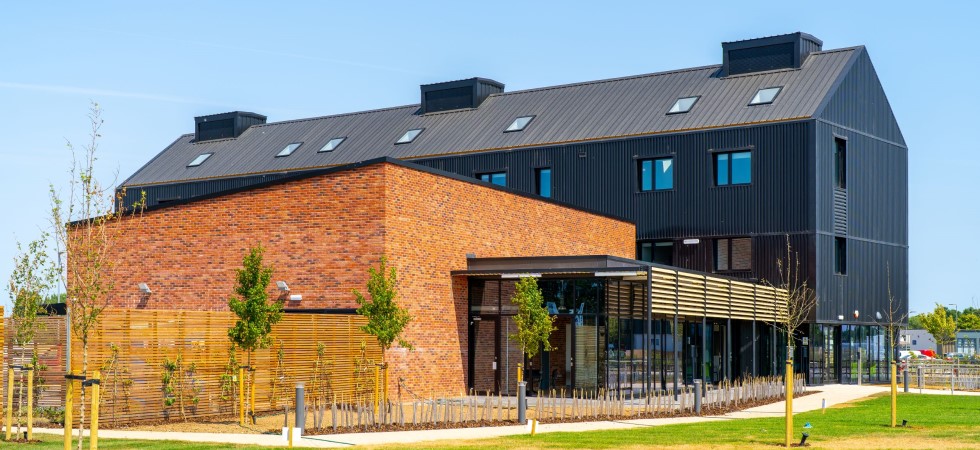Investment in innovation and new business within the agri-food sector is “crucial” for food security, according to key stakeholders in Lincolnshire’s newest Food Enterprise Zone.
The latest of three Food Enterprise Zones (FEZs), the South Lincolnshire FEZ (FEZ) in Holbeach, is a £16 million investment which offers start-ups and SMEs in the agri-tech and food sector an array of specialised and collaborative spaces, as well as access to tailored business support.
Already in situ are new purpose-built facilities including the University of Lincoln’s National Centre of Food Manufacturing, as well as the Lincolnshire Institute of Technology and The Hub.
The South Lincolnshire FEZ is located in the heart of what is known as the “UK Food Valley” – a project pioneering sustainability through innovation – and is a partnership between Lincolnshire County Council (LCC), Greater Lincolnshire Local Enterprise Partnership (LEP), South Holland District Council and the University of Lincoln (UoL).
“As a partnership we’ve mobilised energy and resources into the development,” commented Simon Wright, the regeneration and portfolio officer at LCC. “We are at a real time of need for British food and farming. A challenging economy, food security and environmental ambitions mean we need to invest to collaborate, innovate and deliver. The South Lincolnshire FEZ shows our dedication and commitment – as a council and a partnership – to the agri-food sector, which is currently the fastest growing sector in the county and the UK.”
Greater Lincolnshire has a long tradition in farming and food. It has a total agricultural output worth over £2 billion, which represents 12% of England’s total agricultural production (2019), with the food supply chain providing 24% of jobs in the region, compared to 13% nationally.
“The region is therefore strategically and nationally important to food security,” says councillor Colin Davie, executive councillor for economy and place at LCC. “Agriculture and food, from field to fork, is considerably concentrated in the area – growing 30% of the nation’s vegetables and 18% of its poultry. Having three food industry clusters underlines the region’s strategic national importance as a food producer.”
He added: “Food security will go up the agenda, and the UK will have to grow more of its own produce. The South Lincolnshire FEZ has been designed to put food production, packaging, and delivery at the top of the government’s agenda.”









